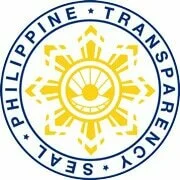Online Gambling in the Philippines
Updated: 2025

The Philippine online gambling market is compelling and potentially lucrative. Even as the industry has grown, however, some in the U.S. have questioned whether online gambling can be both legal and profitable. After all, online poker has collapsed, and the regulated online casinos that once seemed promising have, for the most part, not delivered on that promise. So what gives? Why is the Philippines different? And can the industry there continue to thrive?
Residents are allowed to gamble in approved PAGCOR venues and online in some gambling forms. They can go to vote in any of the PAGCOR betting venues across the Philippines or “vote online” in any of the offshore gambling sites that are apparently so popular among local voters.
Philippines online gaming laws are strange. In both areas of the Philippines, independent operators cannot offer online wagering to locals; it's against the law. But offshore providers with no connection to the Philippines may legally offer their services to the locals—by their own laws.
In brief, two different kinds of laws (or lawlessness) are involved here. The people of the Philippines are not bound by any laws making online gambling illegal. For quite a while, there was vigorous back-and-forth over just what the law said about wagering online. But as we mentioned earlier, a ruling by the Philippine courts in 2012 concluded that no law could be pointed to that made it a crime to bet. So, people, bet online to their heart's content.
A different set of rules applies to operators. Any online gambling site that is licensed in the Philippines and wants to operate there must comply with a set of rules that the Philippine Amusement and Gaming Corporation (PAGCOR)—the Philippines' gambling regulator—has established. But, for reasons that aren't quite clear, these rules also cut PAGCOR off from its own market for online gambling, leaving independent >operators unable to serve locals directly.
Cagayan Freeport and Online Gambling License
The second "region" is the Cagayan Special Economic Zone and Freeport, which most people simply refer to as "Cagayan Freeport". This is the only location in the Philippines that is not completely under the PAGCOR monopoly. In the Freeport, there are many independent casinos that are allowed to serve only tourists.
The Cagayan Freeport also acts as a jurisdiction for online gambling licensing. In fact, it’s the only such jurisdiction in all of Asia. Getting a gambling license from the Philippines is difficult, and you can’t accept bets from Philippine citizens even when you have one, but it’s a valuable license to have. It gives you access to the wider Asian area, which is a market that’s both booming and largely untapped.
The licenses are issued by PAGCOR and all existing licensees are watched over by that entity to assure compliance. Any limited company that might have an interest in obtaining a license is free to apply for one. The application itself carries a cost of $40,000, and if the company is approved for the license, there is a $48,000 fee that must be paid at the outset of the first year. After that, the company must pay $60,000 annually to renew the license.
Those who hold licenses can peddle their services to any and all customers outside these borders. They can also rake in the revenues from customers here and abroad, using our Internet speed and reliability to good effect. Of course, those who hold licenses can also go after the much larger market, the Asia-Pacific region, from the vantage point of an operation in the Philippines.
Every game system has to pass muster, and the company has to keep a very large amount of cash on hand to cover all player balances. The licensing commission is quite stern about these requirements, and it does a very good job of enforcing the rules.
Should you wish to discover additional details about the licensing scenario in the Philippines and the various regulations established, the website of the Philippine Amusement and Gaming Corporation would be a good place to start. If you prefer to get answers to specific questions directly, you might try contacting the office by phone or email. You can find all these details below:








